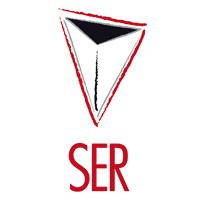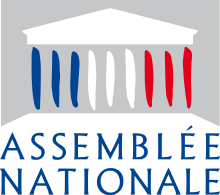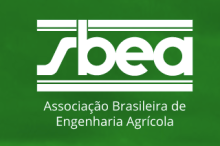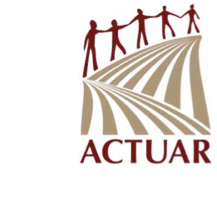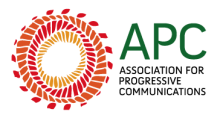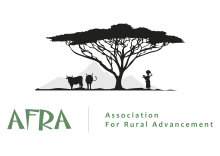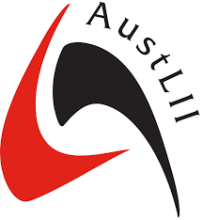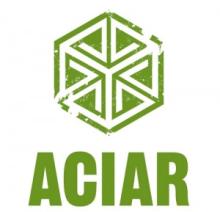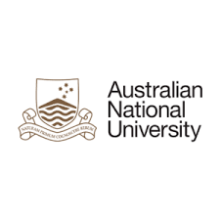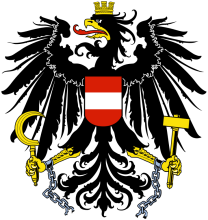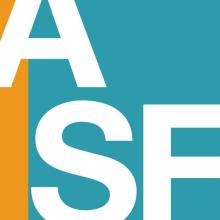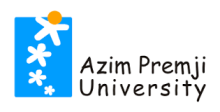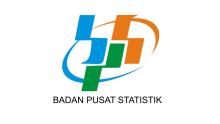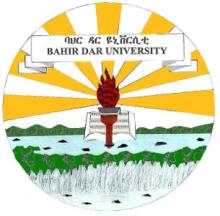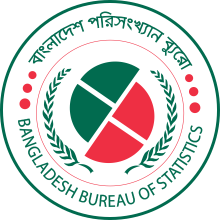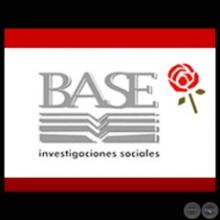Le bibliothèque du foncier comprend des ressources provenant de plus de 1 890 fournisseurs d'informations nationaux et internationaux. Découvrez les organisations et les institutions qui utilisent le Land Portal pour partager leurs recherches, leurs données et leurs histoires en libre accès.
Asociación Nacional de Agricultores Pequeños
Asociación Nacional de Agricultores Pequeños (ANAP). Creada el 17 de mayo de 1961, en el marco del su Primer Congreso, al amparo de las leyes revolucionarias y en su Reglamento general se define que por voluntad y decisión expresa del campesinado cubano, es la organización de masas de los cooperativistas, campesinos y sus familiares, cuyos intereses económicos y sociales se corresponden con el desarrollo armónico de la construcción del Socialismo; sus proyecciones están basadas y orientadas hacia el cumplimiento de la política agraria de la Revolución.
Asociación para el desarrollo de las mujeres negras costarricenses
Por nuestra identidad,desarrollo y cultura.
QUE APRENDI LEYENDO A COCORI … En defensa de don Joaquín. Quince Duncan. Yo pasé por la escuela antes de Cocorí. Es más, soy ocho años mayor que él. De modo que mi lectura de esta obra es, afortunadamente, tardía. Cuando al fin la leía, tenía la madurez para discernir entre la paja y el grano. Cocorí (7ma. Reimpresión. San José: Editorial Legado, 2003) es una novela infantil, publicada por el escritor costarricense Joaquín Gutiérrez Mangel a finales de los años 40 del Siglo anterior y muy utilizada como texto escolar. Además, es posiblemente la obra costarricense más traducida. Hace unos años, dos Asociaciones afrocostarricenses, solicitaron al Presidente de la República que dicho texto no fuese de lectura obligatoria, porque a su juicio no era conveniente utilizarla en la enseñanza a una tierna edad, por algunos de sus contenidos.
Asociación Servicios Educativos Rurales
La ASOCIACIÓN SERVICIOS EDUCATIVOS RURALES (SER) es una institución privada sin fines de lucro de alcance nacional, creada en 1980.
Está conformada por profesionales y especialistas que realizan acciones y propuestas dirigidas a promover el desarrollo y la ciudadanía.
Trabajamos en alianza con ciudadanos y ciudadanas, municipalidades, organizaciones sociales, organizaciones no gubernamentales y otras instituciones públicas y privadas del ámbito local, regional y/o nacional.
Misión
Promovemos el ejercicio de los derechos humanos, principalmente de la población pobre y excluida, la construcción de un estado democrático y el desarrollo rural. Lo hacemos mediante la capacitación, la asistencia técnica, la incidencia política, la producción de información y la generación de conocimientos y de tecnologías innovadoras.
Visión
Seremos considerados como un actor eficiente, confiable y comprometido con la construcción de una sociedad democrática e inclusiva, basada en la equidad y la tolerancia, donde las personas puedan ejercer su ciudadanía, con autonomía, libertad y dignidad.
Assemblée Nationale francaise
L’Assemblée nationale forme, avec le Sénat, le Parlement de la Cinquième République française. Son rôle principal est de débattre, d’amender et de voter les lois. De plus, cette institution a, contrairement au Sénat, le pouvoir de renverser le gouvernement, ce qui implique que celui-ci ne devrait pas être en désaccord avec elle. Elle siège au palais Bourbon à Paris.
En 2012, l’Assemblée compte 577 membres appelés « députés », élus ou réélus aux élections législatives de 2012 au suffrage universel direct au scrutin uninominal majoritaire à deux tours pour une durée de cinq ans, qui forment la XIVe législature, où le groupe Socialiste, républicain et citoyen détient la majorité absolue, si l'on inclut ses apparentés, avec 290 représentants.
Claude Bartolone est le président de l'Assemblée depuis le 26 juin 2012.
Associação Brasileira de Engenharia Agrícola
Em 2015, a SBEA - Associação Brasileira de Engenharia Agrícola comemora o seu Jubileu de Ouro. São 50 anos de caminhada e uma trajetória de trabalhos e conquistas acumuladas durante todo este período. A SBEA atua para fortalecer, difundir e consolidar o conhecimento técnico-científico da Engenharia Agrícola no cenário das Ciências Agrárias.
1. Estabelecer ambiente adequado para análise e discussão de oportunidades nas atividades profissionais voltadas à Engenharia Agrícola e ao contexto para reduzir custos, visando à produção agrícola sustentável.
2. Criar espaço de difusão e debate a partir dos conhecimentos científicos obtidos nas diferentes áreas temáticas do Congresso.
3. Criar discussões de interesse e difundir em vários níveis para reforçar a inserção da Engenharia Agrícola no setor rural.
4. Manter o CONBEA como foro de constante discussão dos problemas da Engenharia Agrícola, garantindo postura íntegra e independente.
Estimular o crescimento e a promoção de desenvolvimento científico e tecnológico na Engenharia Agrícola por meio de congressos, reuniões e publicação de uma revista Técnica-Científica, bem como promover o intercâmbio entre profissionais de nível superior na busca de soluções para os desafios existentes no âmbito da Engenharia Agrícola.
Firmar-se como associação científica capaz de representar a Engenharia Agrícola e de realizar eventos técnicos-científicos gerais e setoriais.
Histórico
Para cumprir com os objetivos propostos por este grupo, publicamos, há mais de 25 anos, a Revista Engenharia Agrícola - Journal of the Brazilian Association of Agricultural Engineering, principal veículo editorial de caráter técnico-científico. Outras ações são os congressos, reuniões, fóruns e eventos que realiza, bem como o apoio à programas educacionais da área.
A associação foi instituída em 13 de setembro de 1965, inicialmente como Sociedade Brasileira de Engenharia Agrícola, na Escola Superior de Agricultura "Luiz de Queiroz" (ESALQ) da Universidade de São Paulo. Em 1980, durante o X Congresso Brasileiro de Engenharia Agrícola (CONBEA), resolveu-se transferir a sede da entidade para o Centro Nacional de Engenharia Agrícola (CENEA), órgão do Ministério da Agricultura, onde foi mantida por sete anos.
Durante o XVI CONBEA, novamente por decisão majoritária da Assembleia Geral, foi indicado o Departamento de Engenharia Rural da Faculdade de Ciências Agrárias e Veterinárias de Jaboticabal, Câmpus da Universidade Estadual Paulista "Júlio de Mesquita Filho" (UNESP), como sede definitiva, onde atualmente está sediada sua Secretaria e Diretoria Executiva.Objetivos
Missão
Visão
Associação para a Cooperação e o Desenvolvimento
ACTUAR is a non-profit and non-partisan secular legal person, governed by private law, formed in 2007 in Coimbra, Portugal. ACTUAR aims to contribute towards the fight against poverty and to the promotion of development based on values of solidarity, equity and human rights respect. Our work philosophy is based on the development of cooperation projects and initiatives in Portugal and worldwide, particularly focused on Portuguese-speaking countries. In order to accomplish our mission, we seek to establish partnerships and dialogue with several organisations.
Associação Rural de Ajuda Mútua
Missão
Defender os direitos e interesses dos camponeses, contribuindo para o desenvolvimento associativo e comunitário, com vista a assegurar a posse e o uso sustentáveis da terra e dos recursos naturais às comunidades rurais.
Visão
A visão da da ORAM é a de uma organização com forte carácter associativo, de referência nacional em assuntos relacionados a terra, recursos naturais e associativismo; com capacidade consolidada no empoderamento das comunidades rurais e no exercício de pressão para gerar mudanças a favor dos camponeses; com uma cultura de gestão transparente e participativa; com recursos humanos capazes, motivados e identificados com a causa camponesa, e com recursos adequados às necessidades.
Objectivo
Fortalecer o protagonismo dos camponeses e a sua capacidade de promover estratégias de posse e uso sustentáveis da terra e dos recursos naturais.
A nossa abordagem
ORAM procura, a luz da sua missão, defender os direitos e interesses dos camponeses, contribuindo para o desenvolvimento associativo e comunitário, com vista a assegurar a posse e o uso sustentável da terra e dos recursos naturais nas comunidades rurais. A intervenção da ORAM no sector de Terras e recursos naturas baseia-se numa abordagem pró pobre e procura salvaguardar pelo menos três aspectos fundamentais a saber: (i)dimensão social, relacionada com a necessidade de se reforçar o papel dos recursos naturais, incluindo a Terra, para a redução da pobreza e promoção do desenvolvimento, por um lado, e por outro, enfatizando a participação das comunidades locais na identificação e implementação das prioridades de desenvolvimento; (ii)dimensão ecológica, relacionada com a necessidade de se garantir a protecção de espécies (animais e plantas) em perigo de extinção e dos ecossistemas frágeis; e (iii)dimensão económica que tem a ver com a forma como as comunidades locais tem acesso e utilizam os recursos naturais para a geração de rendimentos de modo a melhorar a sua qualidade de vida de forma sustentável.
Associates for Development (Uganda)
Organization for research on gender and land rights in Uganda.
Association for Land Reform and Rural Development
Vision
ALRD envisions a Bangladesh where upholding the rights of the citizen is the cornerstone of the State and where the State is pro-actively pursuing the promotion and strengthening of the rights of poor and the marginalized, including the most vulnerable of the society; landless peasants, indigenous peoples, women and religious and other minority communities. ALRD further aspires for a Bangladesh that adopts secularism as key guiding principle and gender equity and social justice are considered as key objectives of all its undertakings.
Mission
ALRD strives for realization of a pro-poor and gender sensitive land and agrarian regime based on comprehensive reforms through advocacy and sensitization of the policy makers, public representatives and other relevant stakeholders. Mobilization of the grassroots stakeholders and their representative organizations in alliance with civil society, intelligentsia and media is key achieving this mission.
Core Values
ALRD is committed to and believes in:
- Attaining gender sensitive organizational environment and promote gender equity and equality at all levels of organizational program planning, management and practices.
- Cooperating with destitute landless peasants, women, indigenous peoples, minority communities, marginalized groups and the disabled for establishing their rights over land, other productive resources and promote their empowerment.
- Extending cooperation and support to groups, organizations and individuals who work on land issues for the poor, women and indigenous peoples.
- Working towards establishing a society free from discrimination and exploitation for ensuring human rights, social justice and equitable distribution of resources.
- Promoting active involvement of all partners at all levels, ensure accountability, good governance, transparency and information sharing at all levels of the organization.
- Initiating self-analysis and self-criticism as important means for achieving professional excellence in the organization.
- Facilitating local level participation of stakeholders in planning, implementation, management and evaluation of ALRD initiated activities at all levels.
Association for Progressive Communications
APC is an international network of civil society organisations founded in 1990 dedicated to empowering and supporting people working for peace, human rights, development and protection of the environment, through the strategic use of information and communications technologies (ICTs). We work to build a world in which all people have easy, equal and affordable access to the creative potential of ICTs to improve their lives and create more democratic and egalitarian societies.
APC's strength lies in the fact that we don't get excited about the internet for the internet's sake. We are committed activists who want to use it to make the world a better place.
We help people get access to the internet where there is none or it is unaffordable, we help grassroots groups use the technology to develop their communities and further their rights, and we work to make sure that government policies related to information and communication serve the best interests of the general population, especially people living in the global South.
Association For Rural Advancement
AFRA is a land rights advocacy non-governmental organisation (NGO) working since 1979 to support marginalised black rural people, with a focus on farm dwellers. We are working towards an inclusive, gender equitable society where rights are valued, realised and protected, essential services are delivered, and land tenure is secure. We work intensively with communities in and around the uMgungundlovu District Municipality in KwaZulu-Natal, South Africa, and extensively in offering support and advice.
Our Vision is an inclusive and gender equitable society where rights are valued, realised and protected.
Our Objective is to identify, promote and support pathways to achieve security of tenure and access to services for people on farms.
Our Development Goal is that the living conditions of farm dwellers have improved, as they have secure land tenure and they are able to access services to improve their livelihoods.
Association for Tropical Biology and Conservation
The Association for Tropical Biology and Conservation (ATBC) is the largest and oldest academic society dedicated to the study and conservation of tropical ecosystems. Our society is international in scope and membership, with almost 900 members from 65 countries, with whom we seek to:
- Promote awareness to as broad an audience as possible of the importance of the tropics
- Improve communication and cooperation among tropical investigators, educators, environmental managers, and local communities
- Inform and influence individuals and institutions whose decisions affect tropical habitats, their biota, and their inhabitants
- Encourage the establishment, improvement, maintenance and accessibility of physical facilities, databases, and collections of biological materials for the study of tropical biology and conservation, and
- Enhance the training of and interactions between the next generation of tropical scientists and conservation professionals.
The ATBC also publishes Biotropica, an international scientific journal publishing original research on the ecology, conservation and management of tropical ecosystems and the evolution, behavior, and population biology of tropical organisms. Biotropica also publishes authoritative and analytical Reviews of topics of current conservation or ecological importance, thought-provoking Commentaries that initiate fruitful debate and discussion, and Special Issues dedicated to major advances by multiple investigators on a conceptual theme, geographic region, or ecosystem. We have a diverse Editorial Board of over 40 members based in more than 20 countries that handles over 400 new submissions per year.
Association for Women's Rights in Development
The Association for Women's Rights in Development (AWID) is a global, feminist membership organization. For over 30 years we have been a part of the incredible ecosystem of women’s rights movements working to achieve gender equality, sustainable development and women's human rights worldwide.
Our vision: A world where human rights and freedoms, environmental sustainability and gender justice are a lived reality for all people and the planet.
Our mission is to be a driving force within the global community of feminist and women’s rights activists, organizations and movements, strengthening our collective voice, influencing and transforming structures of power and decision-making and advancing human rights, gender justice and environmental sustainability worldwide.
Working together is key for women’s rights and gender justice to be a lived reality and we support feminist and women’s rights organizations and movements to collaborate effectively across issues, regions and constituencies.
Our work serves to support, resource and strengthen women’s rights organizations and movements so that they in turn can be more effective in their struggles.
The main focus of our work is global but we also work closely with our members and other women’s rights groups and allies at local, national and regional levels, so that their realities inform our work. We respond to some of the challenging problems that women’s rights movements face, by:
- building knowledge from a feminist perspective and putting new ideas on the table for a more just development agenda;
- organizing and facilitating constructive spaces for our members and other diverse women’s rights organizations and allies to strategize and collaborate;
- participating in international spaces to advocate and present concrete policy proposals for women’s rights worldwide;
- mobilizing our members and broader constituency to strengthen collective action; and
- equipping women’s rights movements with timely and accurate information they can use in their struggles - we are a trusted multilingual online platform for the latest information and analysis on women’s rights worldwide.
Association of Southeast Asian Nations
The Association of Southeast Asian Nations, or ASEAN, was established on 8 August 1967 in Bangkok, Thailand, with the signing of the ASEAN Declaration (Bangkok Declaration) by the Founding Fathers of ASEAN, namely Indonesia, Malaysia, Philippines, Singapore and Thailand.
Brunei Darussalam then joined on 7 January 1984, Viet Nam on 28 July 1995, Lao PDR and Myanmar on 23 July 1997, and Cambodia on 30 April 1999, making up what is today the ten Member States of ASEAN.
AIMS AND PURPOSES
As set out in the ASEAN Declaration, the aims and purposes of ASEAN are:
- To accelerate the economic growth, social progress and cultural development in the region through joint endeavours in the spirit of equality and partnership in order to strengthen the foundation for a prosperous and peaceful community of Southeast Asian Nations;
- To promote regional peace and stability through abiding respect for justice and the rule of law in the relationship among countries of the region and adherence to the principles of the United Nations Charter;
- To promote active collaboration and mutual assistance on matters of common interest in the economic, social, cultural, technical, scientific and administrative fields;
- To provide assistance to each other in the form of training and research facilities in the educational, professional, technical and administrative spheres;
- To collaborate more effectively for the greater utilisation of their agriculture and industries, the expansion of their trade, including the study of the problems of international commodity trade, the improvement of their transportation and communications facilities and the raising of the living standards of their peoples;
- To promote Southeast Asian studies; and
- To maintain close and beneficial cooperation with existing international and regional organisations with similar aims and purposes, and explore all avenues for even closer cooperation among themselves.
Association of Zambian Mineral Exploration Companies
AZMEC is the Association of Zambian Mineral Exploration Companies.
The aims and objectives of AZMEC are to provide a discussion forum and dedicated lobby group for mineral exploration companies and mining companies carrying out exploration as well as government representatives, NGO’s, service providers, academic institutions and other interested parties in Zambia with the view to contributing to the growth, promotion, and sustainable development of the sector in this country.
Australasian Legal Information Institute
AustLII is Australia's most popular online free-access resource for Australian legal information, serving the needs of a multitude of users with over 700,000 hits daily. AustLII is a joint facility of the UTS and UNSW Faculties of Law.
The Australasian Legal Information Institute (AustLII) provides free internet access to Australasian legal materials. AustLII's broad public policy agenda is to improve access to justice through better access to information. To that end, we have become one of the largest sources of legal materials on the net, with over four million searchable documents.
AustLII publishes public legal information -- that is, primary legal materials (legislation, treaties and decisions of courts and tribunals); and secondary legal materials created by public bodies for purposes of public access (law reform and royal commission reports for example) and a substantial collection of law journals.
Australian Agricultural and Resource Economics Society
AARES is the pre-eminent society promoting research relevant to Australasia in agricultural, environmental, food, and resource economics and agribusiness (AEFREA).
Australian Centre for International Agricultural Research
The Australian Centre for International Agricultural Research (ACIAR) invests in applied research to improve agricultural productivity and sustainability and food system resilience in developing countries.
ACIAR is an Australian Government statutory authority within the Foreign Affairs portfolio and is Australia’s specialist international agricultural research for development (R4D) agency.
We work primarily with countries of the Indo-Pacific region through bilateral and multilateral research partnerships. The beneficiaries of these programs include farmers, rural poor, consumers, researchers and policymakers.
Many studies around the world over many years have consistently shown that improving farming systems and food security in developing countries delivers enormous social, economic and environmental benefits, and reduces threats to wider political stability and global security.
Conservative reviews of ACIAR’s return on investment—including those estimated benefits to Australia—were estimated in 2012 present value terms to be $1,164m.
From little things, big things grow: ACIAR’s funded research with the then WA Department of Conservation and Land Management from 1987 to 1995 in Indonesia and Australia formed the foundation of the current sandalwood industry in the Ord River irrigation area of the Kimberly is estimated to have delivered a $936 million benefit.
Australian farmers, agribusinesses and researchers also benefit tangibly through, for example, knowledge and technology exchange, preventing or solving problems before they reach Australia, and building linkages that can foster future trade relationships.
We work in developing countries in four regions:
- Papua New Guinea and Pacific Island countries
- East Asia
- South and West Asia
- Eastern and Southern Africa.
We also work multilaterally through our investment in International Agricultural Research Centres.
Australian National University
ANU is a world-leading university in Australia's capital city, Canberra. Our location points to our unique history, ties to the Australian Government and special standing as a resource for the Australian people.
Our focus on excellence in research and education ensures our graduates are in demand the world-over, well-prepared to address complex contemporary challenges.
Austrian Federal Government
The Austrian Federal Government (German: Österreichische Bundesregierung) is a collective body that exercises executive power in the Republic of Austria. It is composed of the Chancellor, who is leader of the government, the Vice-Chancellor, and senior ministers. The President and the Government together form the executive branch of Austria.
Source: Wikipedia
Avocats Sans Frontières
ASF serves the most vulnerable people waiting for justice
ASF intervenes in countries where human rights are not respected, where political violence and armed conflict reign, and where legal rules are flouted. Justice in those countries, too often arbitrary, does not guarantee the security of the population. Conflicts are not satisfactorily resolved before the local courts. People whose rights have been abused tend to resort to vigilante justice, which evolves into the law of the strongest or richest, and contributes to a climate of violence.
The needs of the population in the field of justice are enormous. Their legal systems are unable, or unwilling, to respond effectively to their expectations with respect to human rights.
- Justice is inaccessible to the most vulnerable groups or individuals – they are unaware of their rights and cannot defend them.
- The degree of independence of the justice system is inadequate, and there are gaps in legislation as well as procedure.
- Justice personnel (lawyers, judges, etc.) are inadequately trained and limited in the exercise of their duties.
- Justice services lack material resources.
ASF’s goal
In agreement with the United Nations (UN), ASF supports the principle that the establishment of the rule of law is an indispensable precondition to the emergence of lasting peace, to the eradication of poverty, and to sustainable economic and social development. In order to ensure the democratic development of these countries, it is essential to resolve disputes by following the procedures of an independent, fair and equitable justice system – in both criminal matters (violations of human rights and freedoms) and civil disputes (domestic disputes, succession, land rights, etc.).
The primary goal of ASF is to contribute to the establishment of mechanisms that allow for access to independent and impartial justice, and which are capable of guaranteeing the protection of fundamental rights (civil and political, economic, social and cultural), including the right to a fair trial.
ASF’s activities
ASF carries out a diverse array of activities to ensure access to justice for the most vulnerable and to establish legal systems that are capable of protecting them.
Our programmes are centred on themes of access to justice and the fight against impunity. We intervene in certain emblematic cases and we mobilise on behalf of lawyers at risk in the practice of their profession.
Our headquarters are in Brussels, Belgium, where we regularly organise seminars for European lawyers on topics such as corporate social responsibility and the role of lawyers in the prevention of torture. Most of our activities however are implemented ‘in the field’, in fragile or post-conflict countries. We have permanent offices in 7 countries (Burundi, Central African Republic, Chad, Democratic Republic Congo, Morocco, Uganda, and Tunisia). We also implement multi-country projects, about the protection of human rights defenders, international justice, and the promotion of freedom of expression.
Azim Premji University
Azim Premji University was established in Karnataka by the Azim Premji University Act 2010 as a not-for-profit University and is recognized by The University Grants Commission (UGC) under Section 2F.
The beginnings of the University are in the learning and experience of a decade of work in elementary education by the Azim Premji Foundation. The University was founded as one of the key responses to the constraints and challenges that the Foundation encountered both within and in the environment, and as part of a larger strategy to contribute to the Education and Development sectors in the country.
Badan Pusat Statistik (BPS - Statistics Indonesia)
Badan Pusat Statistik (BPS-Statistics Indonesia) is a Non-Ministry Government Agency directly responsible to the President. The BPS is instituted by Law Number 16, 1997 on Statistics; Government Regulation Number 51, 1999 on Statistics Undertakings; Presidential Decree Number 166, 2000 on Status, Task, Function, Authority, and Organizational Structure of the Non- Departmental Government Institution; Presidential Decree Number 178, 2000 on Organizational Structure and Task of the Non-Departmental Government Institution; Presidential Decree Number 163, 1998 on College for Statistics; Executive Act Number 001, 2001 on The Organization and Task of the BPS; Executive Act Number 101, 1998 on The Organization and Task of College for Statistics. Previously, BPS was Biro Pusat Statistik or Central Bureau of Statistics (CBS) instituted by Law Number 7, 1960 on Statistics.
The aforementioned law, and decree stipulate functions to be performed by BPS, as follows:
- To provide data to the government, and public.
The data is derived from its comprehensive statistical activities, comprises of periodic information on structure and growth of economy, social change, and development. Those statistics may be derived from its own researches and surveys as well as from other government department as secondary data. - To assist statistics divisions of government departments and other institutions, in developing statistical system, needed to setup work program and periodic reporting scheme.
- To develop and promote standards to be incorporated in the implementation of statistical techniques and methods, and to provide necessary services in the field of education and training in statistics.
- To establish cooperation with international institutions and other countries for the benefit of Indonesia's statistical development.
Bahir Dar University
Bahir Dar University was established by merging two former higher education institutions; namely the Bahir Dar Polytechnic and Bahir Dar Teachers’ College. The Bahir Dar Polytechnic Institute, which has transformed itself into Technology and Textile institutes, was established in 1963 under the technical cooperation between the Government of USSR and the Imperial Government of Ethiopia. The institute was a premier institute in producing technicians for the nation. The Bahir Dar Teachers’ College, by then known as the Academy of Pedagogy, was established in 1972 by the tripartite agreement of the Imperial Government of Ethiopia, UNESCO and UNDP and started actual work in the following year under the auspices of the Ministry of Education and Fine Arts. Its general objective was to train multipurpose primary education professionals capable of adopting primary education to rural life and rural development. Its specific objectives were to train primary school teacher trainers, supervisors, educational leaders, adult education organizers and community development agents.
The two institutions of higher learning were integrated to form the Bahir Dar University following the Council of Ministers regulation no. 60/1999 GC. The University was inaugurated on May 6, 2000. Bahir Dar University is now among the largest universities in the Federal Democratic Republic of Ethiopia, with more than 52,830 students in its 219 academic programs; 69 undergraduate, 118 masters, and 32 PhD programs; Bahir Dar University has Five colleges, four institutes, two faculties and one school. The academic units of the University include College of Science, College of Agriculture and Environmental Sciences, College of Medical and Health Sciences, College of Business and Economics, College of Education and Behavioral Sciences, Bahir Dar Institute of Technology, Ethiopia Institute of Textile and Fashion Technology, Institute of Land Administration, Institute of Disaster Risk Management and Food Security Studies, Faculty of Humanities, Faculty of Social Sciences, School of Law, Sport academy and Maritime academy. The research centers of the university are Blue Nile water Institute, Biotechnology research Institute, Pedagogy and Education research Institute, Energy research Institute, Textile, garment and fashion design, Abay culture and development research center, Geospatial data and technology center, Institute of Economics research and Demographic surveillance
Banco Audiovisual de Frentes Socioambientais
O Banco Audiovisual de Frentes Socioambientais é um canal centralizador de material audiovisual (VIMEO) com cunho socioambiental que tem como objetivo disponibilizá-lo gratuitamente para pessoas ou instituições.
Uma comunidade que defende uma causa socioambiental e não tem recursos para captar material audiovisual; um estudante que queira material para pesquisa acadêmica; um jornalista; um ambientalista; um documentarista. São exemplos de casos que podem usufruir do banco. A utilização do material fica restrita a projetos com cunho socioambiental sem fins lucrativos.
O canal também tem a proposta de agregar material audiovisual de várias fontes, ampliando assim o seu conteúdo. Então se você for um produtor audiovisual e quer disponibilizar seu material bruto ou editado para que outras pessoas façam bom uso dele, esse é o canal que pretende centralizar esse acervo.
Todo material será segmentado em frentes socioambientais específicas para facilitar a organização do banco, então será possível encontrar diferentes álbuns dentro do grupo com diferentes temas sociais ou ambientais, cada um de acordo com o conteúdo dos vídeos que esse álbum reúne.
Para solicitar o download de qualquer material, basta enviar uma mensagem para o administrador do grupo explicando a sua finalidade com o material e, em seguida, assinar um termo de compromisso de uso da mídia solicitada.
Para enviar qualquer material, basta fazer o upload em uma conta do VIMEO e solicitar a sua inserção no grupo.
O Banco Audiovisual de Frentes Socioambientais é projeto realizado pelo documentarista Pedro de Filippis através da ONG MACACA (Movimento Artístico Cultural e Ambiental de Caeté) em parceria com o Fundo Socioambiental CASA.
Banco Interamericano de Desarrollo
El BID trabaja para mejorar la calidad de vida en América Latina y el Caribe. Ayuda a mejorar la salud, la educación y la infraestructura a través del apoyo financiero y técnico a los países que trabajan para reducir la pobreza y la desigualdad. Su objetivo es alcanzar el desarrollo de una manera sostenible y respetuosa con el clima. Con una historia que se remonta a 1959, hoy es la principal fuente de financiamiento para el desarrollo de América Latina y el Caribe. Ofrece préstamos, donaciones y asistencia técnica; y realiza amplias investigaciones. Mantiene un firme compromiso con la consecución de resultados medibles y los más altos estándares de integridad, transparencia y rendición de cuentas.
El BID prioriza la inclusión social y la igualdad, la productividad y la innovación, y la integración económica regional en su trabajo de desarrollo a lo largo de América Latina y el Caribe. De este modo, aborda las cuestiones transversales de la igualdad de género y la diversidad, el cambio climático y la sostenibilidad ambiental, y la capacidad institucional y el Estado de derecho.
Bangladesh Bureau of Statistics
Bangladesh Bureau of Statistics (BBS) is functioning as the national statistics agency of the country. Welcome to the official website of Bangladesh Bureau of Statistics. This website is an exhibition of the current functions and data storage of the Bangladesh Bureau of Statistics. Browse through pages and links to find the information you want. Recognizing the importance of statistics in formulating proper planning, development and monitoring of progress in Bangladesh after the 1971 independence struggle, as a result of the far-sighted thinking of Father of the Nation Bangabandhu Sheikh Mujibur Rahman and under his direction in August 1974, 4 statistics offices Bureau, Agricultural Bureau of Agricultural Statistics under the Ministry of Agriculture and the Agricultural Census Commission and the Census Commission under the Ministry of Home Affairs) were created by merging the Bangladesh Bureau of Statistics.
Bangladesh Law Digest
Bangladesh Law Digest (BDLD) is a leading law journal in Bangladesh. It started its journey on June 2, 2015 with a view to providing the lawyers, legal researchers and law students with a brilliant platform to dissect, analyze and synthesize various issues pertaining to the legal field. It strives to develop legal research and writing skills of students while publishing articles that serve both practitioners and academicians.
BDLD arranges seminars and competitions on various legal issues three times a year. Law students from almost all universities across Bangladesh participate in the programs. BDLD has a tremendous database of barristers, judges, lawyers, legal researchers and law students.
Bank Information Center
The Bank Information Center (BIC) partners with civil society in developing and transition countries to influence the World Bank and other international financial institutions (IFIs) to promote social and economic justice and ecological sustainability. BIC is an independent, non-profit, non-governmental organization that advocates for the protection of rights, participation, transparency, and public accountability in the governance and operations of the World Bank Group and regional development banks.
The above mission rests on the core premise that socially and environmentally sustainable development is not possible without the informed and active participation of local communities. All too often, powerful interests prevent local voices from shaping development policy and projects. Many of the current economic and social crises affecting the world’s poor are in large part a result of their marginalization. By opening political space around development decision-making, BIC aims to ensure that local communities and civil society organizations have an important voice in decisions that affect them. BIC assists these groups through its information dissemination and capacity building activities, coalition building, project and policy monitoring, and advocacy support services.
BIC is supported by private foundations and organizations that work in the fields of environment and development. BIC is not affiliated with any of the Multilateral Development Banks, nor does it receive any funding from them.
Base Investigaciones Sociales
Naturaleza
BASE Investigaciones Sociales es un centro de investigaciones sociales, de carácter autónomo, inscripto en el Registro Público como entidad privada sin fines de lucro.
Misión
BASE Investigaciones Sociales es un centro que se dedica a la investigación y difusión de conocimientos sobre la realidad paraguaya y a la formación, desde una perspectiva crítica. Orienta su accionar prioritariamente al servicio de las organizaciones sociales en la construcción de una sociedad equitativa, solidaria, respetuosa de los derechos humanos y de la naturaleza.
Visión
Aspiramos a una sociedad equitativa, solidaria, respetuosa de los DDHH y de la naturaleza, en cuya construcción participa Base Is como institución comprometida con organizaciones sociales, y articulada a otros actores a nivel nacional e internacional, contribuyendo desde una lectura crítica de la realidad con la formación y la producción de conocimiento con rigurosidad académica.


